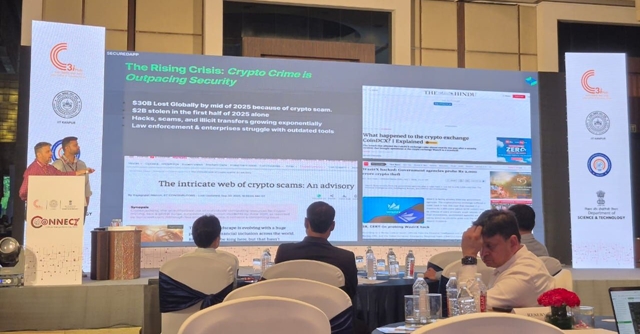
IIT Kanpur-backed startup launches blockchain forensic and investigation platform


SecureDApp, a cybersecurity startup incubated at IIT Kanpur, has unveiled SecureTrace, a blockchain forensic and investigation platform designed to address the growing challenge of financial crime in the Web3 ecosystem. The launch was announced during Connect 1.0 – C3iHub Startup Demo Day 2025 in Delhi, an event highlighting new developments in cybersecurity.
The platform uses Artificial Intelligence (AI) to trace illicit transactions and investigate fraud across multiple blockchains. Its introduction comes at a time when cryptocurrency-related scams are on the rise, with more than $2 billion reported stolen in the first half of 2025 alone. Conventional forensic tools, which often focus on single blockchains and face limitations in speed and compliance, have been struggling to cope with the scale and complexity of recent crimes.
SecureTrace aims to overcome these challenges by offering real-time, cross-chain tracing and compliance-ready reporting. It combines transaction pattern analysis, graph-based mapping, chronological reconstruction, and entity clustering to help investigators detect anomalies, follow financial flows, and uncover coordinated fraud. The platform is designed for use by enterprises, regulators, and law enforcement agencies.

Abhishek Singh, Co-Founder of SecureDApp, said that SecureTrace would “redefine blockchain forensics by enabling investigations that once took weeks to be initiated in real time, across multiple chains, with compliance-ready evidence.” He added that the system was one of the first indigenous enterprise-grade forensic platforms available in India, the Middle East, and Africa, providing speed, scalability, and transparency in an area where traditional methods have often fallen short.
Developed in collaboration with C3iHub at IIT Kanpur, the platform integrates blockchain-native intelligence with advanced analytics while maintaining global regulatory compliance. Its capabilities have already been tested during a real-world investigation in which stolen funds were traced following a smart contract hack, demonstrating its practical effectiveness.

